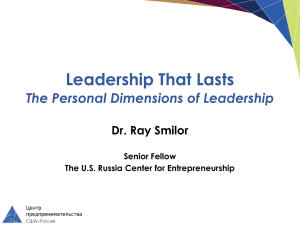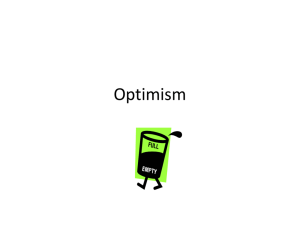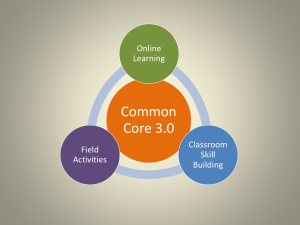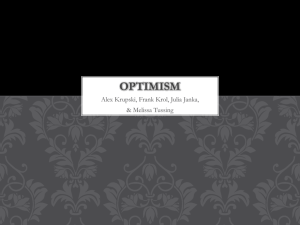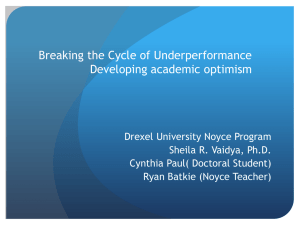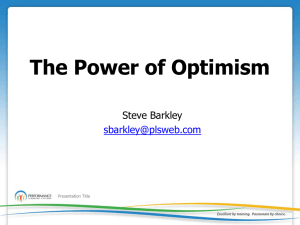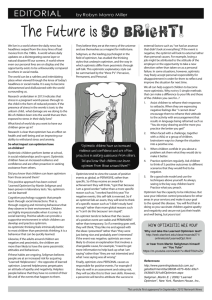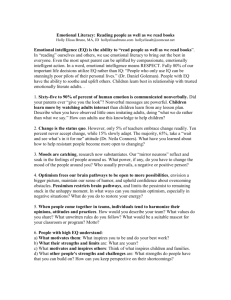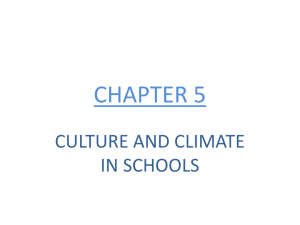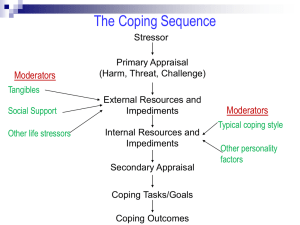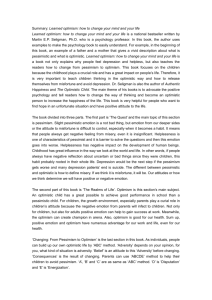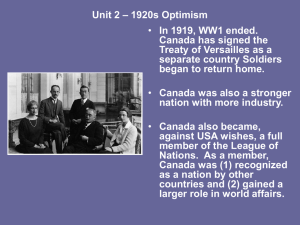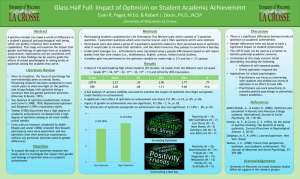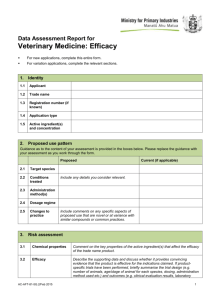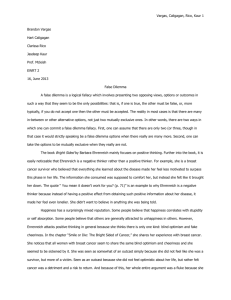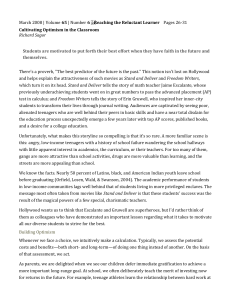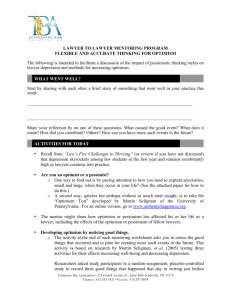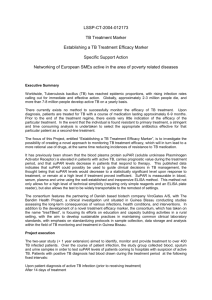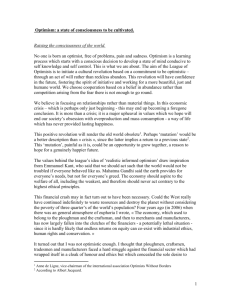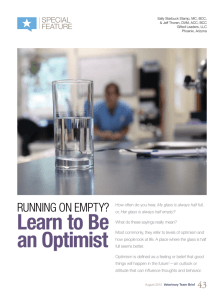Academic Optimism of Schools: A Force for Student Achievement
advertisement
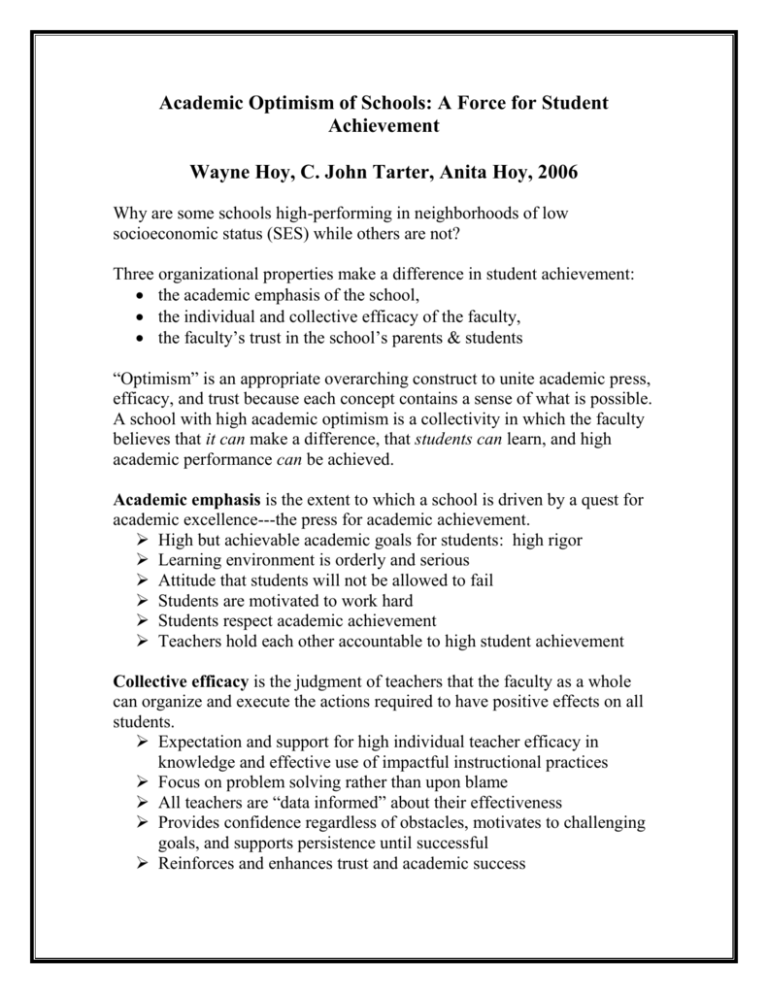
Academic Optimism of Schools: A Force for Student Achievement Wayne Hoy, C. John Tarter, Anita Hoy, 2006 Why are some schools high-performing in neighborhoods of low socioeconomic status (SES) while others are not? Three organizational properties make a difference in student achievement: the academic emphasis of the school, the individual and collective efficacy of the faculty, the faculty’s trust in the school’s parents & students “Optimism” is an appropriate overarching construct to unite academic press, efficacy, and trust because each concept contains a sense of what is possible. A school with high academic optimism is a collectivity in which the faculty believes that it can make a difference, that students can learn, and high academic performance can be achieved. Academic emphasis is the extent to which a school is driven by a quest for academic excellence---the press for academic achievement. High but achievable academic goals for students: high rigor Learning environment is orderly and serious Attitude that students will not be allowed to fail Students are motivated to work hard Students respect academic achievement Teachers hold each other accountable to high student achievement Collective efficacy is the judgment of teachers that the faculty as a whole can organize and execute the actions required to have positive effects on all students. Expectation and support for high individual teacher efficacy in knowledge and effective use of impactful instructional practices Focus on problem solving rather than upon blame All teachers are “data informed” about their effectiveness Provides confidence regardless of obstacles, motivates to challenging goals, and supports persistence until successful Reinforces and enhances trust and academic success Relational trust Trust defined as one’s ability to be vulnerable to the other based upon the belief that the other will act in one’s best interests. 5 facets: benevolence, reliability, competence, honesty, openness Cooperation sets the stage for effective student learning.; distrust makes cooperation virtually impossible Trust and cooperation among students, parents, and teachers influenced regular school attendance, persistent learning, and faculty experimentation with new techniques & resources Optimism matters as much as talent or motivation in achievement, and it can be learned and developed. As individuals can develop learned helplessness, organizations can be seduced by pervasive pessimism—reinforcing, selffulfilling, and defeating. Academic optimism views teachers as capable, students as willing, parents as supportive, and the task as achievable. Each factor—efficacy, academic press, and trust—is related to, is dependent upon, and reinforces the other. Three Dimensions: Cognitive: collective efficacy is a group belief or expectation Affective: faculty trust in parents, students, and in one another Behavioral: academic emphasis is a push for behaviors that recognize, support, celebrate academic accomplishment Optimism is thwarted by stress; thus, decreasing stress supports optimism. Teachers can lower their stress by increasing their agency through appropriate participation in decisions that affect their school lives.
